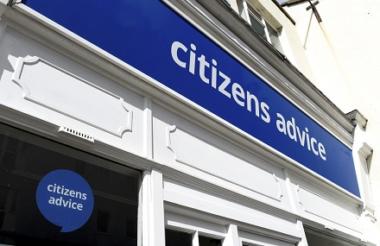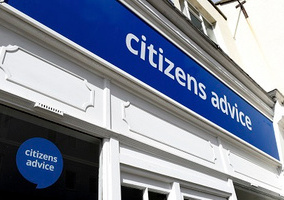Citizens Advice and #CharitySoWhite were wrong to say that a controversial training slide used by the charity was racist, a new report has argued.
Citizens Advice faced widespread criticism last year over the content of digital slides prepared for training staff. Campaigners, and later the charity itself, described the slides as racist.
The report says they made “a grave error in judgment” in their handling of the high-profile racism row, and calls for a joint inquiry between the Equality and Human Rights Commission and the Charity Commission to investigate the validity of their positions.
The paper, released this week, argues that the slides could only be viewed as racist when removed from the context of the training material, and says that the incident undermined work to address poverty in ethnic minority communities.
It also says the debate around the slides was dominated by “a small, non-representative voice [which] drowned out reason and compassion in the pursuit of clicks and headlines”.
‘Independent initiative’
The paper is produced by a collection of individuals calling themselves the 4F Group.
The group describes itself as “an independent grassroots initiative” made up of volunteers with experience in the charity and public sector. They say they are a multicultural team of various religious faiths and beliefs.
The individuals involved are largely kept anonymous, with the exception of the group's leader David Chorlton. In the paper, which is titled The Rubicon Review, they say this is partly to protect themselves against a personal backlash online.
Accusations of stereotyping
The report is the latest development in a row which started in August 2019, when internal training material produced by Citizens Advice was published and shared on social media.
One slide listed several potential “barriers” to helping Black and ethnic minority groups to access financial support, including “an intrinsically cash-centric culture” and “low levels of literacy”.
Fatima Iftikhar, who uncovered the materials, described the slide as “horribly racist”.
Citizens Advice apologised, and an internal investigation two weeks later concluded that the material was “unacceptable”. Earlier this year, chief executive Gillian Guy said it “promoted racial stereotypes and accordingly was racist”.
Iftikhar went on to help found the campaigning movement #CharitySoWhite, partly in response to the incident and the debate that followed.
Slide was “divorced” from context
The 4F Group paper argues that the social media focus on the slide about potential “barriers” to financial assistance led to claims of racism which were “specifically divorced” from the context in which the materials were produced.
It goes through each of the nine “barriers” listed on the original slide, drawing on 2,522 pieces of independent evidence from the likes of the Office for National Statistics, charities and academia.
It argues that the training, once placed in this context, identified legitimate questions in helping ethnic minority communities to access financial services.
For example, while the paper acknowledges that the use of blunt language such as cash-centric “has the potential to cause offence”, it cites evidence that Black and ethnic minority communities have higher levels of distrust in mainstream financial institutions than other groups, and are disproportionately likely to work in the grey economy where ‘cash-in-hand’ payments are more common.
Overall, the report says: “These nine ‘stereotypes’ were simply clumsily-worded but nonetheless accurate attempts to tackle stigma”.
It adds: "Somewhere along the line both CSW and Citizens Advice have made a grave error in judgment."
Class and race
The Rubicon Review argues that the ensuing debate about race in the charity sector represents “an increasing class-bias in national charity work”, which focuses too little on “the underlying root causes” of poverty.
It says there is “an increasing reluctance to address stigma and voice uncomfortable truths by members of BAME communities that are no longer representative of those communities”.
It states: “We felt shame as we observed a charity sector unite to exhibit what the Ahmed Iqbal Ullah Race Relations Resource Centre only last year referred to as ‘racial anxiety’ and that Wendy Williams described in this year’s Windrush Review as ‘reflexive defensiveness’.
“In other words, a fear from policy-makers to address stigmatised issues in case they cause offence.”
Chorlton told Civil Society News: “The 4F Group believes that all Black and ethnic minority voices need to be heard, from across the multiplicity of communities and experiences in the UK.
“Yet at the same time this review has found overwhelming evidence of a reluctance of key strategic voices in the third sector to boldly discuss race and address stigma.
“We hope this work can encourage a long-overdue inquiry into precisely this intersection of race and class, with the goal of a fairer sector that is able to listen to all voices.”
CSW: Building an anti-racist society
A statement from the CharitySoWhite organising committee said: “CharitySoWhite is a grassroots, intersectional movement with a vision of a charity sector that takes the lead to root out racism in our society. We work to enable challenging conversations that need to happen to achieve this and look to conduct these with honesty, humility and hope.
“As a volunteer-led organisation, we are not able to respond to every conversation about our work, and are currently focused on supporting and listening to BAME Networks in the sector we are already partnering with.
“However, as part of our current strategy work we are planning some upcoming listening campaigns. These will be open to all in the sector and we encourage as many people as possible to engage with them and feed in.
“We are excited to create spaces to explore how the sector can continue to fight racism. The sector still has a long way to go, but we remain hopeful as we see organisations begin to take steps to building an anti-racist society.”
Citizens Advice: The material “contained racist stereotypes”
Gillian Guy, the chief executive of Citizens Advice, said: “We believe that in order to confront and tackle racism, it’s vital that anyone who sees or experiences it is able to call it out.
“It was important for us to acknowledge that this piece of training material contained racist stereotypes and we apologised for it. We subsequently reflected and changed how we approach equality, diversity and inclusion at Citizens Advice to ensure we acknowledge all forms of racism.
“We’re also determined to break down any barriers people may face when accessing our services. We are constantly listening, learning and adapting our service to make sure we are here for everybody, whatever their problem.
“While we have a long way to go, we are committed to speaking up and making sure we play our part in building an organisation, sector and society that is more equitable and anti-racist.”
The Charity Commission confirmed that it has received a copy of the report and is deciding whether further action is needed.
Related articles











